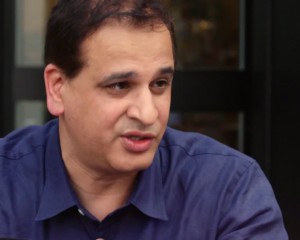If your Body Clock is off-balance and out of synch with the day, your Sleep Patterns will be disrupted
A good night’s sleep is tuned to the day, or rather, the night and your body should be synchronised with the daily patterns of the sun and darks of the night.
Retune your Melatonin levels to improve your sleep patterns
Dr Chris van Tulleken “I’m a lousy sleeper, and it’s getting worse as I get older. I wake up in the middle of the night more, I get tired during the day so I have a nap then something important happens, that stresses me out and I can’t get to sleep at night. It’s a really lousy sleep pattern.
Millions of bad sleeping patterns can have a serious effect on our brains, so how can we break them?
Body Clock off-balance
We found a place where there are plenty of people having problems sleeping; a retirement village.
As we get older, problems with sleep get worse. Residents complain of broken nights of sleep and early rising. These are classic examples of bad sleep and whether you’re stressed or getting older the cause is the same. It’s down to your hormones. Especially one called melatonin. Melatonin should be naturally released into our brain as night falls, making us drowsy. Dr Manny Bagary explains”
Dr Manny Bagary
Dr Manny Bagary “This is a melatonin card for a young adult, and as you can see around about 7 0’clock the melatonin levels start to increase up to about 3 or 4 in the morning when they peak and then decrease.”
Dr Chris van Tulleken “And melatonin is the hormone that puts me to sleep?”
Dr Manny Bagary “Yes, it helps you to go to sleep.”
Dr Chris van Tulleken “Why does our sleep get worse as we get older?”
Dr Manny Bagary “As we get older, the melatonin peak tends to come a bit earlier, so you tend to sleep earlier, you also wake up earlier.”
So to tackle our volunteers’ sleep problems we’re going to start by measuring their melatonin. We do this by taking saliva samples regularly throughout the day until they fall asleep. We’re also tracking their sleep patterns through watches that monitor their movements and by keeping detailed diaries.

After a week, Manny analyses our volunteers data. For some, it’s clear from their melatonin patterns that their body clocks are all wrong. We see a classic example of a pattern of an older individual with the melatonin peaking around 8pm. Sending him napping, but his melatonin drops again when he should be going to bed.
We have researched a whole raft of ways that might get their body clocks back on track. Boosting melatonin at the right time, helping with sleep.
And have prepared each of our volunteers with a ‘Trust Me’ sleeping bag with instructions. The regime starts, surprisingly, in the morning. They’re not allowed to lie-in, they must get up and open the curtains to get bright sunlight. Sunlight helps set the body clock suppressing melatonin production in the brain, this should help make them be alert for during the day. Caffeine in the morning is fine, but not after 3pm. Afternoon naps are strictly forbidden.
Supper menu has a few unusual things to try, even though there’s less evidence for them.
Pineapple actually contains melatonin. A bit of a long-shot that it’ll put you to sleep. but if you’re desperate and you like pineapple it might be worth a go.
There are other melatonin containing alternatives such as: rice, walnuts, sweetcorn, banana, orange and a warm milky drink.
After supper, it’s no alcohol and complete darkness. Even the blue-tinted light of computer screens can suppress melatonin that should be being released into the brain.
Dr Manny Bagary “Most people seemed to get better, but those changes really seemed to come through towards the end of the week”
Dr Chris van Tulleken “Some of the things we tried were rather experimental, but others have good scientific backing behind them and some of them, at least, seem to have had an effect. There’s evidence that better melatonin patterns and sleep might do all our brains good too.”
References
All of the above information came from the BBC series Trust Me, I’m a Doctor
